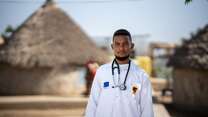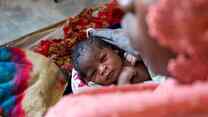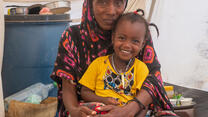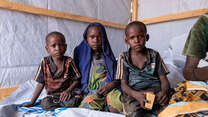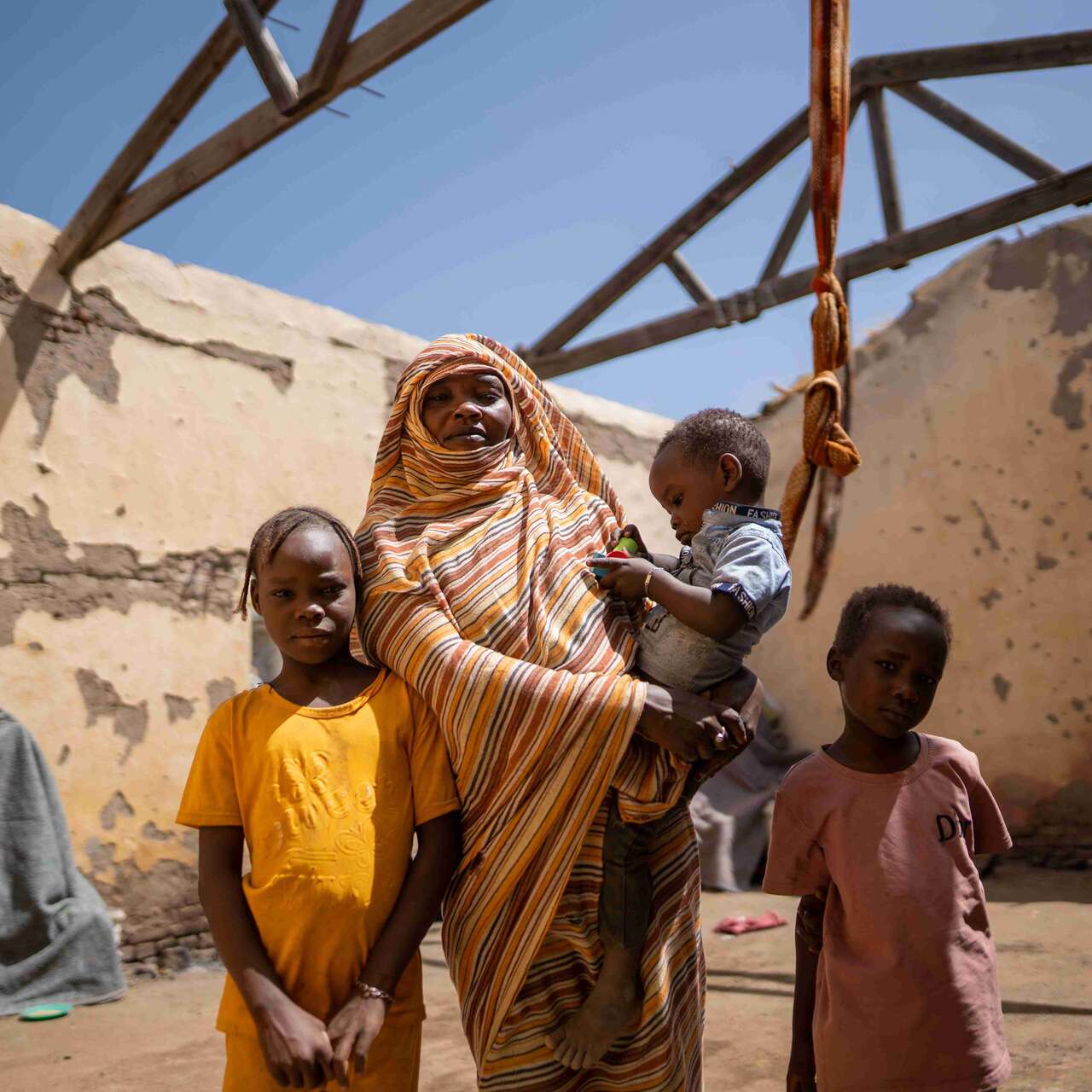
Ongoing crisis amplifies hardships
Since the conflict in Sudan began on April 15, 2023, when the Sudanese Armed Forces (SAF) and the Rapid Support Forces (RSF) clashed, throwing the country into turmoil, civilians have been suffering the most.
The crisis has left 30.4 million people—64% of the population—in need of humanitarian aid. Women and their families have faced hardships and been forced to flee their homes, with their journeys to safety being marked by challenges.
Alarming safety concerns, sexual violence, health crisis, and famine are major issues affecting women and children in Sudan. These challenges have been exacerbated by the ongoing conflict, leaving many in urgent need of humanitarian assistance.
A struggle for survival
Altuma Ibrahim, a 45-year-old mother of nine children (three girls and six boys), is one of the many enduring the hardships of displacement. When violence escalated in their home city of Khartoum, Sudan’s capital, she and her children found themselves trapped between warring groups. Their neighborhood turned into a battlefield, forcing nearly all residents—including Altuma and her family—to flee.
“We spent our days and nights under the bed,” she recalls. “At night, [the children] couldn’t sleep because of the planes. And during the day, the moment they saw them, they would run to hide under the bed.”
Escaping trauma
Altuma’s children suffered blast trauma and psychological distress from the escalating violence and the constant sound of planes. This ultimately led the family to flee to Madani, where they stayed for nine months.
There, Altuma sought psychiatric help for her children, which significantly improved their mental health.
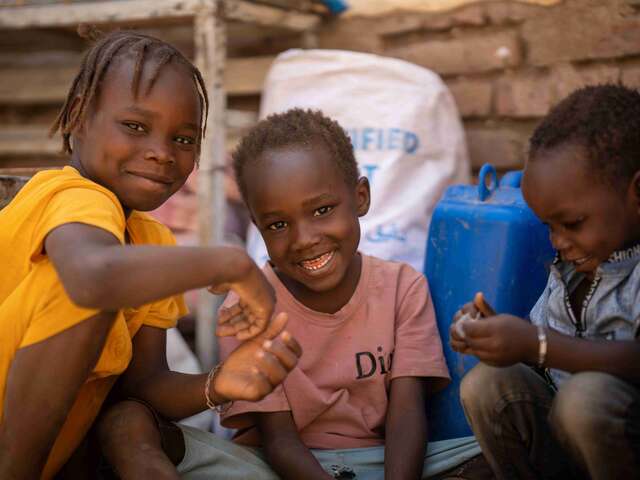
Robbed and forced to flee again
Altuma and her family stayed in Madani for 9 months, but when fighting broke out there too, they were trapped in their home for 3 days lacking food and water.
After one of her children was injured, they managed to escape and traveled to Al-Faw, a district in Gedaref state in eastern Sudan, about 250 kilometers from the capital, Khartoum. The journey took four days and was filled with challenges, including looting at checkpoints.
They found shelter at a school in Al-Faw for two days before learning that others were also fleeing the area, prompting them to continue their journey to Kassala, approximately 600 kilometers from capital.
They arrived with nothing after being robbed of their belongings. Like countless others fleeing the conflict, they were robbed at checkpoints, some even at gunpoint.
“We all came here without anything.”
Life before the conflict
Before the conflict erupted in Khartoum, Altuma’s home had two rooms and a hut with a kitchen.
She had planned to renovate after Eid al-Fitr and had already purchased building materials, including 5,000 blocks, sand, and other supplies. Eid al-Fitr, a major Islamic holiday marking the end of Ramadan, is a time of celebration, featuring communal prayers and festive meals.
At that time, Altuma owned a restaurant and worked at the local market. Her children attended good schools, and the younger ones were enrolled in kindergarten which led to a stable life.
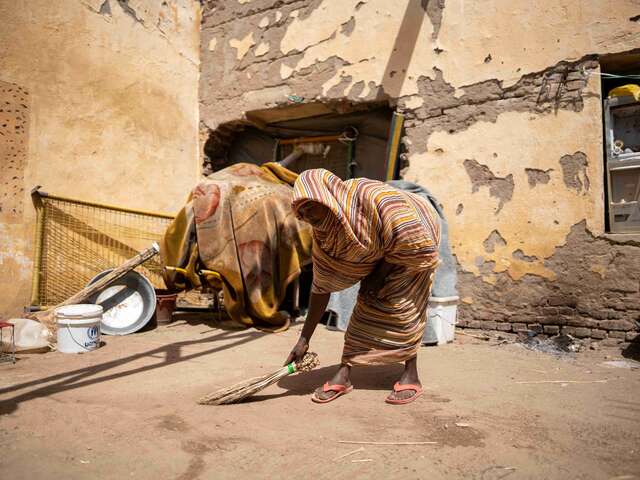
Seeking safety and help
When Altuma and her family arrived in Gedaref camp in eastern Sudan, near the border with Ethiopia where they found shelter in a school, despite the lack of roofs leaving them exposed to weather conditions.
“We have lived in the cold and now in the heat. We are fasting under the sun. There is no shade. We think it is better for us to be here than in the conflict zone, so we stayed.”
Altuma found hope at the IRC clinic through its program funded by the European Union (EU) which has been a great help to her family. Her son was initially misdiagnosed with a hernia in Khartoum, but the IRC medical team identified the real issue and provided the correct treatment.
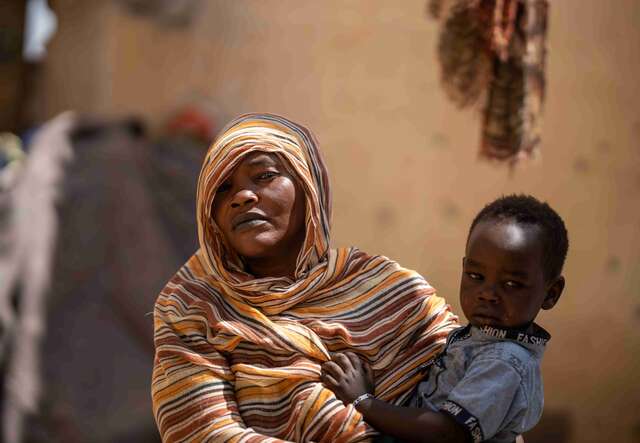
She emphasized that many people in the area seek treatment from the IRC because it provides medicine and care for both children and the elderly, making sure no one is neglected.
How are the IRC and the EU helping displaced Sudanese?
The IRC has scaled back operations in some parts of Sudan but continues to provide vital support in Blue Nile, Gedaref, and White Nile states while maintaining a logistics and coordination office in Port Sudan and expanding operations into River Nile State.
We collaborate with partners in Khartoum and are working to resume full operations there where access permits.
This work is made possible through the support of the European Union. Together, our programs focus on assisting refugees and displaced communities in Sudan, while also extending humanitarian efforts to neighboring countries, including Chad, Ethiopia, and South Sudan.
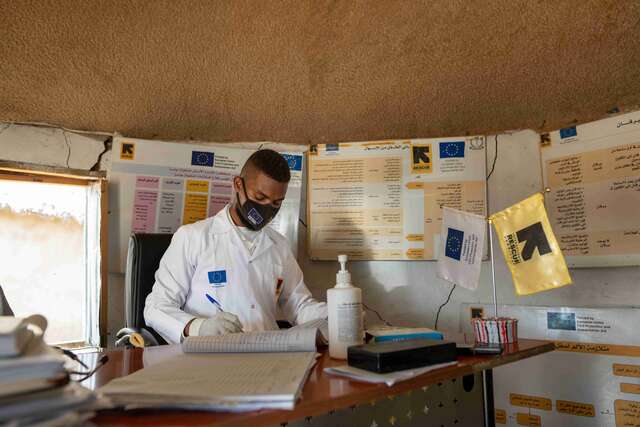
The International Rescue Committee partners with the European Union to provide life-saving support to people caught in conflict and disasters around the world. Our work funded by the EU enables people to survive, recover and rebuild their lives.

